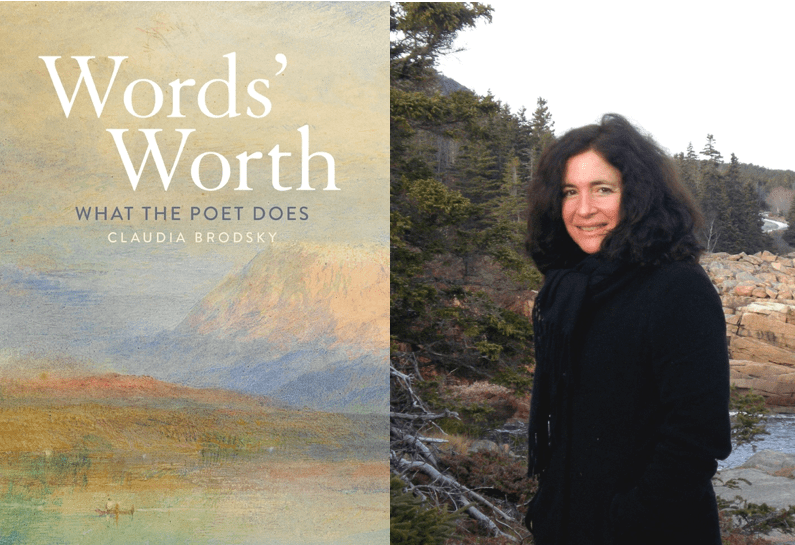Claudia Brodsky is Professor of Comparative Literature. Her new book “Words’ Worth: What the Poet Does” is published by Bloomsbury Academic.
How did you get the idea for this project?
I’ve read and taught Wordsworth for many years – indeed, my original “job talk” at Princeton was on “Imagination” and narration in The Prelude – and have always remained, frankly, astonished by the powerful effect his poems work upon their readers, using the sparest, unadorned language, line and verse forms in extraordinarily dynamic ways to do so. Asked some years ago to contribute to a volume on Wordsworth’s poetics and poetic theory, I studied his theoretical writings in depth, and was equally astonished to read the frank, carefully worded, deeply philosophical argument developed across them regarding “what the Poet does:” the description of poetry (and, moreover, “words themselves”) as uniquely “worthy” modes of action, reflection, and representation over time – more or less the exact opposite of the longstanding caricature of this poet, as avatar of “feeling” alone.
How has your project developed or changed throughout the research and writing process?
The project grew in tandem with a book I had long been writing on the centrality of language to Kant’s project of Critique, including the “synthetic” act of “predication” underlying cognitive judgments, the essential role of speech in the act of aesthetic judgment, and the unique status accorded “the art of poetry-making” in The Third Critique. I quickly recognized not only that Kant’s own account of “what the poets do” reads exactly like lines of Wordsworth, and that Kant’s theory of the sublime and the poet’s were nearly identical, but why the two shared a common conception of “real language” in action that Wordsworth’s poetry puts into practice. Close analyses of poems and passages of The Prelude in Words’ Worth examine how that action is achieved.
What questions for future investigation has the project sparked?
Although the galleys for the Kant book — just arrived in my inbox this morning! — impatiently await correction, I have already started thinking of writing on two very different poets from Wordsworth whom I have always taught in conjunction with him, Keats and Dickinson, whose individual uses of language in a distinctly temporal mode are as “really” effective, in Wordsworth’s sense, as any I have ever read.
Why should people read this book?
If you use language, you should read this book.
Learn more about other recent publications by Princeton University faculty in the Humanities by exploring our Faculty Bookshelf.
















